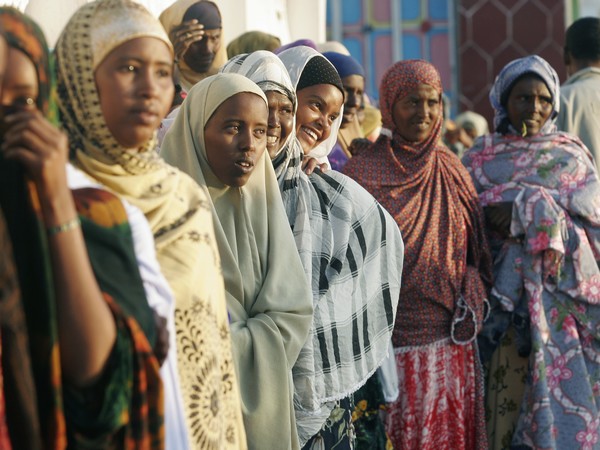One nomad one vote in Somaliland elections

The Academy for Peace and Development, a partner of the Geneva based peacebuilding organisation, Interpeace, is working closely with Somaliland’s electoral commission to ensure the territory’s first parliamentary elections in 14 years are fair and democratic.
The Academy based in the capital Hargeisa has been training polling station officers and educating key towns and villages about the democratic process.
A video produced by the Academy on voter education premiered on Somaliland TV and is being shown in all the main towns and villages in the territory that declared independence after the overthrow of the Somali military dictator, Siad Barre in 1991.
In a drive to increase the participation of women and young people over the age of 16 in the elections, a circus show is also touring the capital and 11 main towns and villages. It includes a question and answer session where members of the three political parties – the governing United People’s Democratic Party, the main opposition Kulmiye or Unity Party and the Party for Justice and Democracy – are grilled on their policies for youth and women.
Organisers say that despite high adult illiteracy rates in Somaliland, particularly amongst the nomadic communities, its messages on how to vote and why are getting home.
A woman serving tea at a stall in a small hamlet outside Hargeisa points to an election poster and explains that it says that every adult has the right to vote once for whoever they want and that above all the elections should be peaceful.
The Academy for Peace and Development, along with Oxfam, and local women’s non-governmental organisations such as NEGAAD and COSONGO have developed a Code of Conduct signed by both the political parties and the media and undertaken joint peace missions to potential flashpoints in order to encourage peaceful participation.
The groups have identified locations for almost 1000 polling stations and trained members of the upper house of parliament, the Guurti, on the electoral process. The so-called House of Elders has a mainly advisory role to the lower house of parliament and its members are not up for election.
On 29 September, 246 candidates, including seven women will contest the 82 seats in the lower house.
